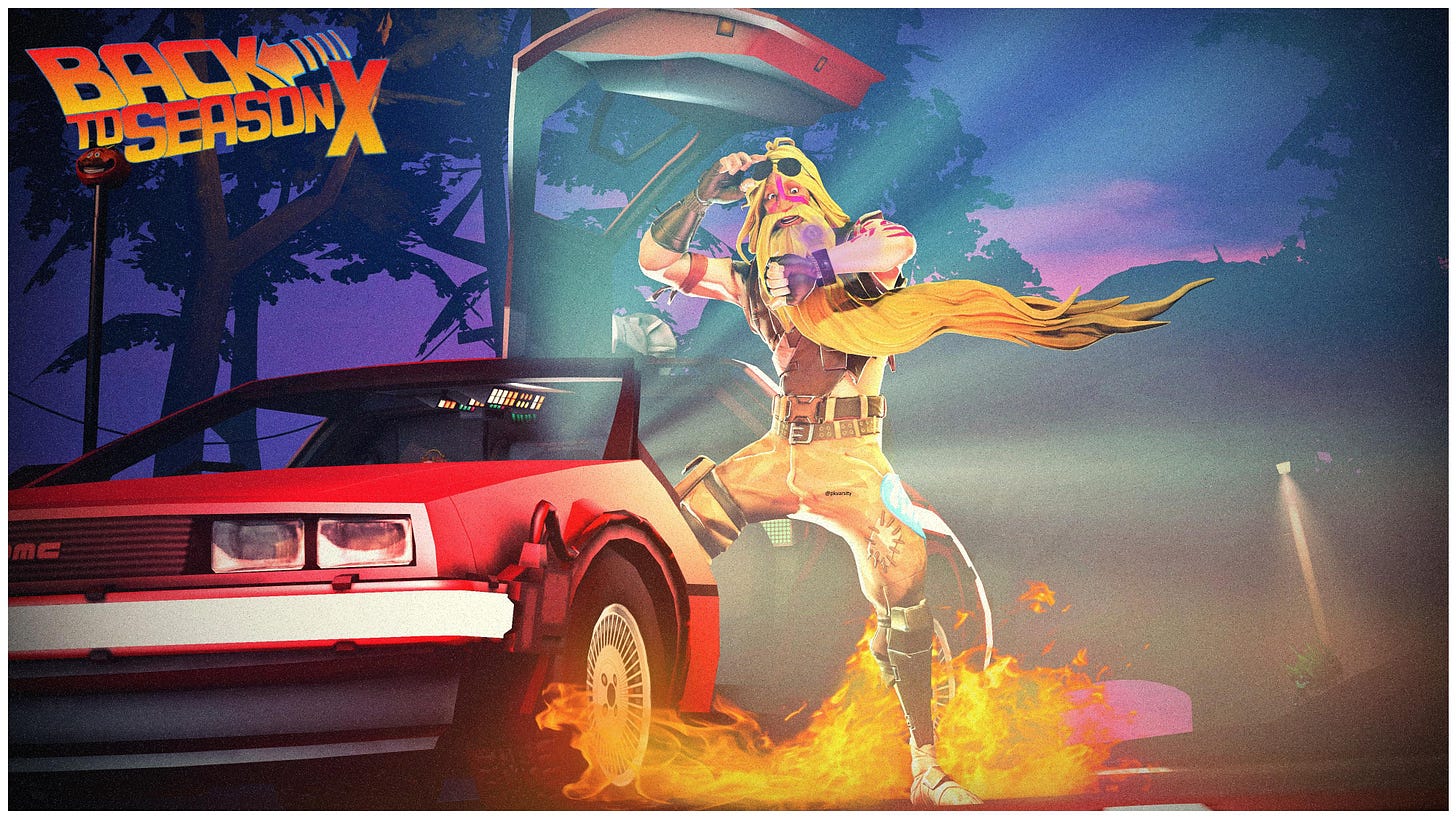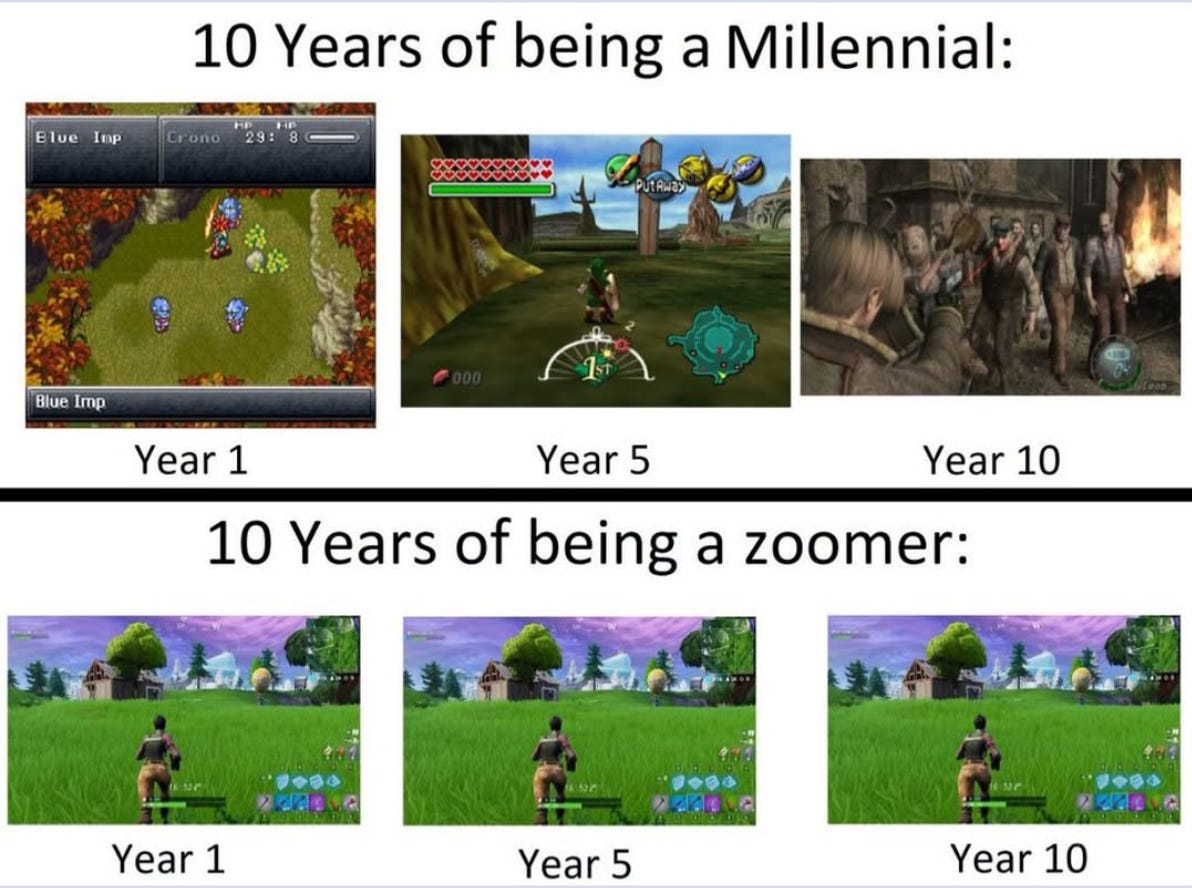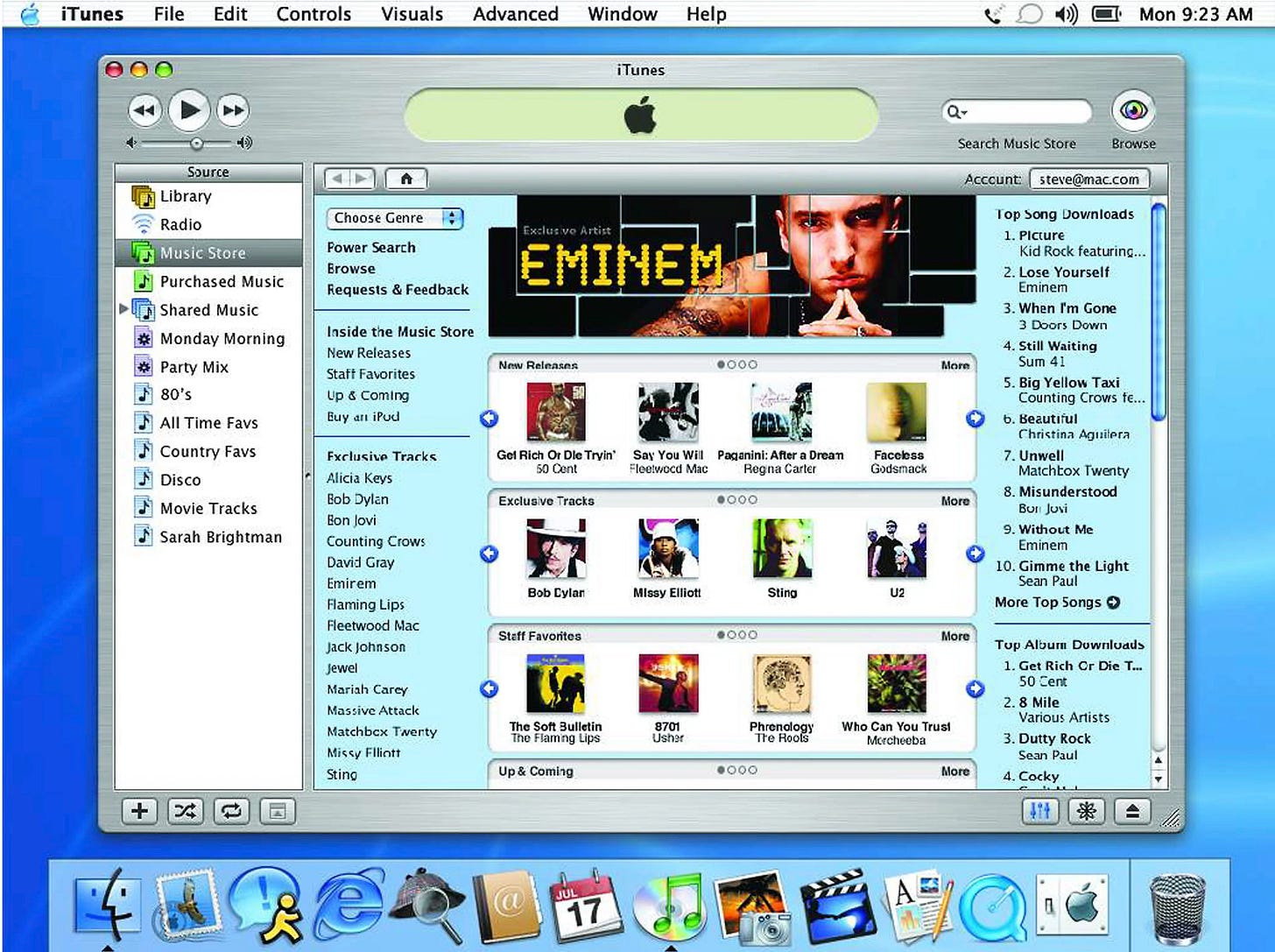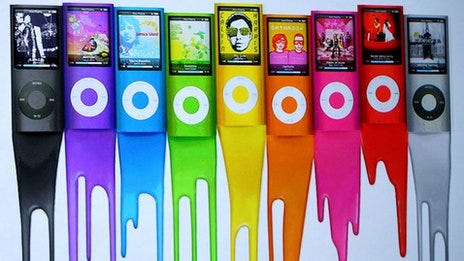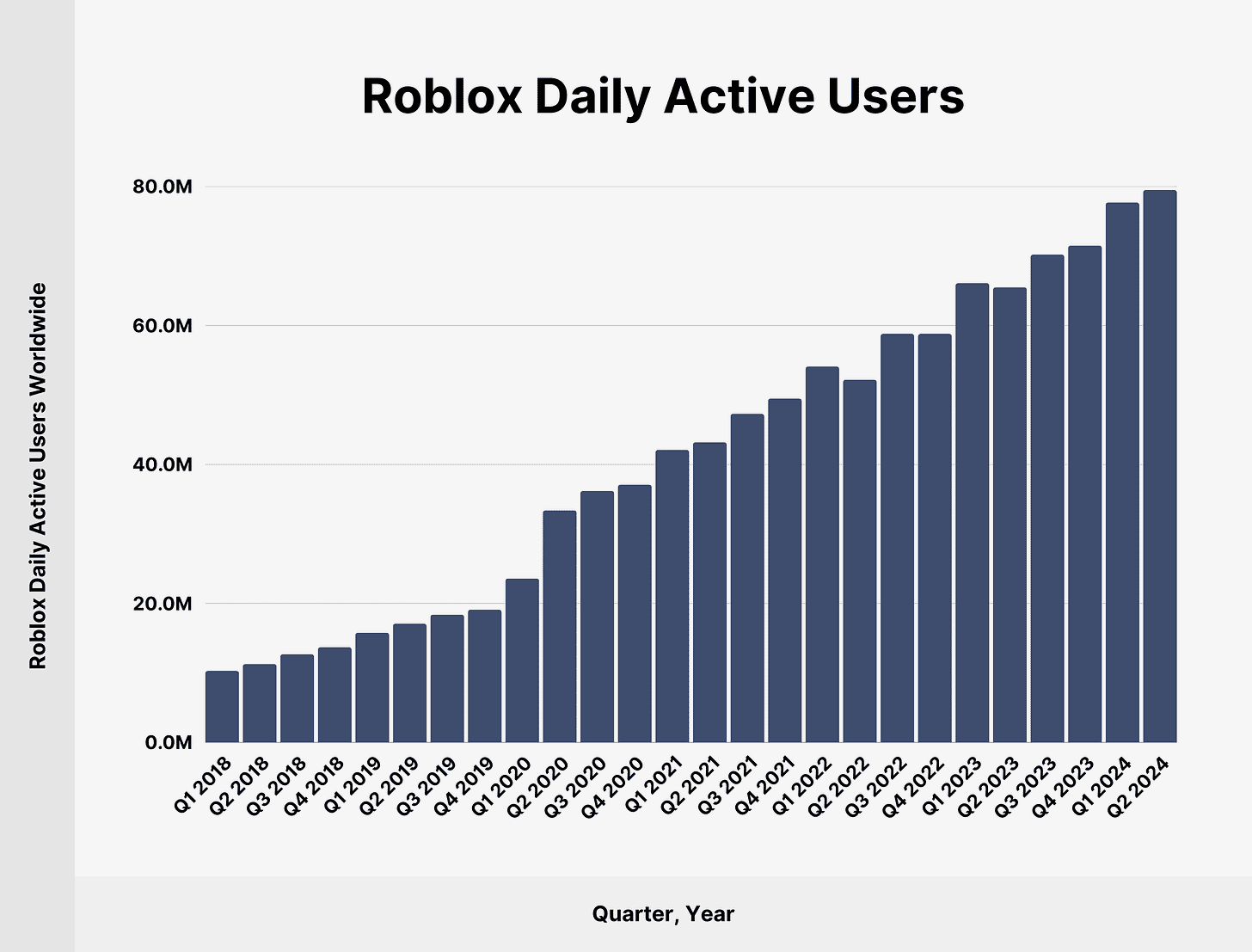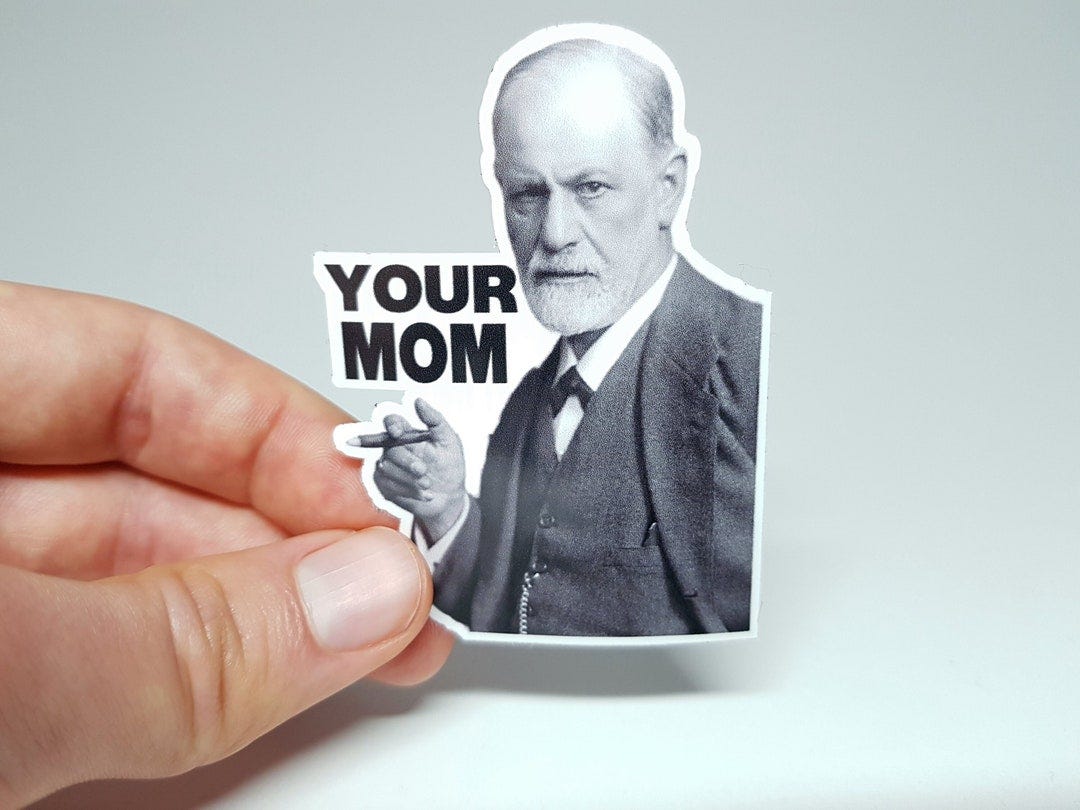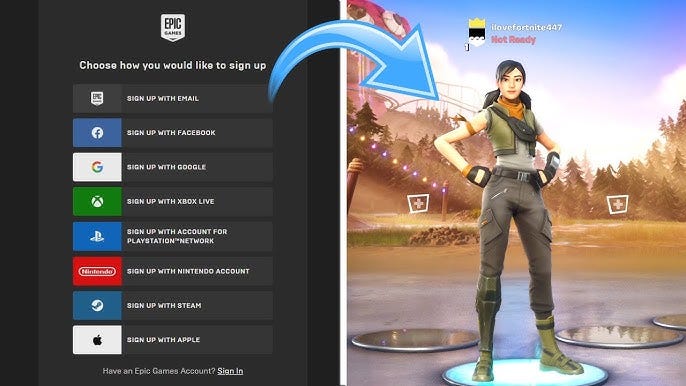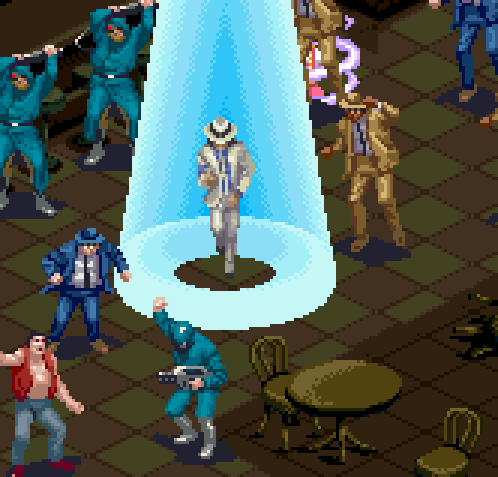iTunes, Portals and Bottlenecking Gaming Culture
Music biz strategy and foretelling. What we can learn from iTunes success ages ago, and how it points towards an issue with gaming today. Where's my crystal ball?
I just pulled a Marty McFly. I zipped into the future, saw a timeline where only a handful of games are the only digi-venues left standing, and now I’m back with a wild idea involving music campaigns, shared game economies, and maybe, just maybe…a better timeline.
From a music perspective, I’ve first hand witnessed the industry change and grow over time, however the success of iTunes pointed something out to me about modern gaming. I’d like to write this down somewhere, so here you go.
‘Back In My Day’
Why was iTunes successful?
Games-As-A-Platform Vs. The World
MULTI-PORTAL LICENSING (And other sexy solutions)
1. ‘Back In My Day’
When my era of gamers grew up (Ew, what a line to use) we started out on the Sega MegaDrive, highlights include: Golden Axe, Streets of Rage, and Sonic the Hedgehog. Then came the N64 & PS1 era, which absolutely blew my mind - GoldenEye, Mario 64, Future Cop: LAPD, Silent Bomber, and of course, Final Fantasy.
Then we were blessed with the GameCube inc. Smash Bros., Lost Kingdoms, Sonic Adventure 2 Battle, as well as the PS2, inc. GTA, Black, Kingdom Hearts, more Final Fantasy, AND the original Xbox (Halo, NBA Jam, Fable) - handhelds too!
I couldn’t afford my own Xbox 360/PS3 at the time, but I got my fix playing Modern Warfare 2 in uni halls with friends. Shared experiences through couch co-op was king at this time, Gears of War, Halo, the Perfect Dark XBLA remaster, Borderlands etc…
This all happened within the space of 10-ish years
The music and culture woven into those experiences shaped my taste in ways I still feel now. It was the way games introduced me to artists, genres, and styles I might never have found otherwise. That influence didn’t stay locked in the gaming world either because I’m sure those discovered recommendations were shared with friends who don’t even play. Music has truly benefited from this kind of gaming-led curation because music is so portable.
…But what about the younger gamers existing today?
As much as the above is a meme, there is truth within it. There have only been a handful of games that have dominated player attention for the last 10 years. My initial impression is that a big chunk of music & culture has been experienced through these games. If moments like Travis Scott events, or Dress To Impress, only happen within a selection of games, this could create a bottleneck of culture. It could mean that only certain-sized or supported music artists would be able to be part of these competitively scheduled moments - so what’s your alternative?
2. Why Was iTunes Successful?
Swinging over to the music industry - In the early 2000’s we had music piracy. ooooo (I’m imagining some panto-style ‘He’s Behind You’ commentary here). Think Napster, Limewire and many other torrent sites that enable you to get hold of a music file for free.
After folklore tales of digi-first employees at major labels being laughed out of meeting rooms when they warned about the wave of digital music, the execs finally saw the sales numbers drop to piracy and they had to do something about it. In comes Digital Rights Management (DRM)! We had this horrible period of time that is well documented where labels introduced solutions, such as native, isolated, password protected media players, some of which where you had to enter in a password to legitimately play legally purchased digital music on your computer. Every. Single. Time.
Given the continuing climb of piracy, it was clear that this poor user experience felt more like a punishment for legally purchasing music.
Then, Apple came in wearing a cape with the iPod and the Apple iTunes store, with that TV ad that plays that bloody ‘Jerk It Out’ song that does my head in. It seemed so simple - here’s an easy way to buy & play music. And it did quite well, both financially and culturally.
Here’s a great book recommendation on this narrative.
This solution was ergonomic. Instead of following the piracy route, resulting in a messy downloads folder and your AVG-antivirus running on overtime, your iTunes library became a way to showcase your identity. Your iPod became more and more full of music that you ‘owned’…
(I spent ages thinking if i should air quote that given the depth of complexity with that word and contentious discussions everywhere but i did it anyway. so there.)
…but more importantly, music that you could do whatever you wanted with. That was my main point - The music industry eventually permitted that if you buy digital music you can move it out of iTunes, but if you buy a cosmetic inside of most games it can only be accessed within the game.
3. Games-As-A-Platform Vs. The World
But just like a relationship, ‘time-spent-in-it’ is a factor to continue seeing someone. Bold bridge I’m making here bear with me…
In her 1980 study, Caryl Rusbult surveyed individuals in romantic relationships to test what factors predicted their commitment to a partner. She found that commitment was not solely based on satisfaction, but also on the perceived quality of alternatives and the size of investments made in the relationship, such as time, emotional energy, and shared experiences. Even when satisfaction was low, people were more likely to remain in a relationship if they had made significant investments. These findings led to the formulation of the Investment Model of Commitment, which remains influential in relationship psychology today. Here’s that paper.
Psychology, anyone?
Let’s go back to gaming, focusing on those modern dominating games like Fortnite, Roblox, Minecraft (now known as GAAPs, like Games-As-A-Platform)…
All those assets - stats, achievements, KD ratios, money spent on skins that they used for a bit and probably will never use again, events, and onwards, are still kept inside of the GAAPS. These games have become digital hoarding cupboards for previous indulgences that makes you feel it’s not ‘wasted’ if you’re adding to a ‘forever accessible’ catalogue of your items, assuming these GAAPs are forever.
This is one of the many arguments for player retention to GAAPs, outside of ongoing live updates, free access, good additional games, community, FOMO when events are on etc. My main angle here is related to assets, and this is important because I believe assets to GAAPS are as relative as music is to iTunes.
I have 3 observations to make:
An example - 58% of Roblox users are under 16. The above Roblox graph shows perpetual linear growth. Young players are coming on this platform, and staying.
Going back to iTunes - you can move music (assets) outside of iTunes (GAAP), but you can’t move your game assets outside of a GAAP - a technical and legal nightmare.
Given these points, today’s gamers are more likely to experience music & culture if a GAAP has a partnership with it. At the moment, it’s mostly major ‘Hollywood IP’s that can operate at this scale and dominate the spotlight during GAAP events.
So, how can an artist belong in this space if this timeline becomes true? Ergonomics and permanence.
4. MULTI-PORTAL LICENSING (And other sexy solutions)
I have two ideas for this.
Feature 1: A ‘Global’ account for Non-GAAPs
Requirements: Everyone who is releasing stand alone games to co-operate, including platforms like Sony, Xbox etc. Likelihood? hahahaha.
What about a ‘global’ gaming account that unifies your activity across all your games? It tracks your achievements, rewards healthy play habits (like not grinding the same game endlessly), and unlocks perks across ecosystems. Download a skin on one game? Maybe it unlocks something in another game you’ve not played recently, or one that’s been sitting on your wishlist. Nothing is left to a game that you may only want to play through once.
If the HD gaming market is really that big, maybe it’s time to form a collective (like what Beggars Group did in music) to create more cohesion across platforms. A shared ecosystem could give in-game purchases more permanence, and opens up the potential to license to multiple games at once, making these partnerships more ergonomic.
Given how unlikely this is, what can music representatives do instead on relying on structural changes?
Feature 2: Multi-Portal Licensing
I originally wanted to call this the Fractionalized Multi-License model. But it humerously abbreviated as ‘FML’ and seemed way too apt for this analysis.
I’d look to license music in the context of an upcoming artist/album campaign across multiple games, treated as if this is a standard addition to a marketing plan. This is basically the same as above but the artist’s team controls the narrative.
A process could be that you sit down with an artist and understand their values and if gaming should even be considered as part of an artist/album campaign. Then, if yes and their values are understood, you can speak with game companies to see how their music and presence can be implemented in appropriate ways that cross-pollinate properly. I’ve written about these ideas loads.
But here’s the trick - you don’t stop there, you do it more, and consistently, and indefinitely, and merge your artist’s forever journey with how it interacts with the gaming world, finding interesting ways to connect these from outside games in your own control. Tip: Don’t just think about GAAPs, there’s loads of cool games out there. Do deluxe album editions with exclusive tracks come with in-game DLC’s for select games? Do DLC packs come with exclusive discounts to merch?
There is an emergence of superfan platforms now that act like a Patreon. Can a fan’s subscription to an artist’s fandom continually unlock a tiny corner inside of as many games as they are able & encouraged to access, indefinitely? That’s the answer. How do you do it as a music representative? All depends on the complex world of the artist and their direction…
Aaaand back to the present…We used to have games curate cultural experiences for us in multiple vessels. But would we want the next generation of gamers to have only really played a couple of games during the most influential and experimental parts of their lives? Would we want the younger generation only reading a couple of books, or even have only seen a couple of films? Only eating a few select dishes? Only having listened to a couple of albums? In 10 years?
GAAPS are like the o2 arena - only big artists that can sell out stadiums play there, but it doesn't stop you having the best night of your life at Slim Jims in Angel one friday night listening to your new favourite band. Both of these shows are important.
Get me a coffee. Actually, I’m not so good on caffeine. I’ll take a whiskey though?
TLDR
Today’s gaming landscape is dominated by a few massive platforms (‘GAAPs’ like Roblox), which risks bottlenecking music and culture into narrow pipelines. Drawing parallels to how iTunes once solved music piracy with ergonomics and user-friendly ownership, I propose two ideas: a universal gaming account to connect experiences across titles, and artist-led Multi-Portal Licensing to embed artist campaigns into a wider spread of games. The goal: more granular cultural diversity, better artist integration, and a future where players explore more than GAAPs and big-money ‘Hollywood IP’s.
Ergonomics and permanence.


